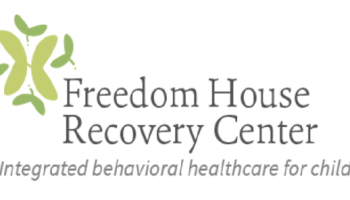The UNC Family Medicine Center at Chapel Hill

About The UNC Family Medicine Center at Chapel Hill
The UNC Family Medicine Center at Chapel Hill in North Carolina is not a dedicated addiction treatment center, but they do offer services at this location and within the broader UNC health system for substance use treatment, including assistance through withdrawal and detox. Chapel Hill is home to the University of North Carolina, the Auckland Art Museum and the North Carolina Botanical Garden. Each offers unique experiences and opportunities during your treatment process.
Primary Care & Behavioral Medicine
Appointments at the UNC Family Center are Monday through Friday, which may be covered by your insurance plan. They provide primary care services for a variety of conditions for adults and children. Their providers include family practitioners, social workers and a behavioral medicine specialist.
While the behavioral medicine specialist can address mental health conditions and concerns surrounding substance use disorders, this location doesn’t specifically address detox and withdrawal. However, they can provide referrals for medication assisted treatment (MAT) using FDA-cleared medications to reduce cravings alongside evidence-based therapies.
Higher Level of Psychiatric Support in STAR
When more psychiatric support is needed for treatment, the UNC Health System provides the substance treatment and recovery (STAR) program in Chapel Hill that includes individual and group therapy and help with psychopharmacological and medication management referrals. These referrals ensure that you receive the necessary medication to support sustainable recovery.
| Levels of Care | Detox Service Setting | Programs | Payment Options | Medications Offered | |
|---|---|---|---|---|---|
|
In outpatient therapy, you’ll attend therapy sessions several times each week while living at home. This is ideal if you have a strong support system and a lower risk of relapse. Outpatient treatment offers flexibility to maintain work, school or family obligations. |
|||||
|
Outpatient detox gives you access to medically supervised withdrawal services while still allowing you to live at home. You’ll attend a clinic for treatment and monitoring. This flexible option is suitable for those with mild to moderate withdrawal symptoms who have strong support systems. |
Medication assisted treatment combines medication and counseling to manage withdrawal and reduce cravings for opioid and alcohol addiction. Medications may include methadone, buprenorphine or naltrexone. MAT is tailored to your needs so you can actively participate in your treatment journey. |
||||
|
Women's programs offer a safe and supportive space to focus on gender specific issues such as trauma, family roles and mental health conditions. Therapists tailor the sessions to address women's needs and foster empowerment in a healing and nurturing environment. |
Men's programs address substance use while also considering the social pressures, family roles and mental health concerns that are specific to men. You’ll learn healthy coping mechanisms as you build emotional resilience and develop communication skills. |
Young adult programs are designed for individuals who are transitioning into adulthood. Topics of discussion typically include identity, independence and peer relationships. Providers may also offer life skills training and career support. |
Adult programs address the substance use and life challenges specific to adults. Therapists can deliver sessions in individual, group and family settings. Services often include job support and life skills training in a structured environment. |
||
|
Self Pay
|
Medicaid
|
Medicare
|
State Family Services
|
Private Insurance
|
Military Insurance
|
|
Methadone
|
Buprenorphine
|
Naltrexone (Vivitrol)
|
Levels of Care
In outpatient therapy, you’ll attend therapy sessions several times each week while living at home. This is ideal if you have a strong support system and a lower risk of relapse. Outpatient treatment offers flexibility to maintain work, school or family obligations.
Detox Service Setting
Outpatient detox gives you access to medically supervised withdrawal services while still allowing you to live at home. You’ll attend a clinic for treatment and monitoring. This flexible option is suitable for those with mild to moderate withdrawal symptoms who have strong support systems.
Medication assisted treatment combines medication and counseling to manage withdrawal and reduce cravings for opioid and alcohol addiction. Medications may include methadone, buprenorphine or naltrexone. MAT is tailored to your needs so you can actively participate in your treatment journey.
Programs
Women's programs offer a safe and supportive space to focus on gender specific issues such as trauma, family roles and mental health conditions. Therapists tailor the sessions to address women's needs and foster empowerment in a healing and nurturing environment.
Men's programs address substance use while also considering the social pressures, family roles and mental health concerns that are specific to men. You’ll learn healthy coping mechanisms as you build emotional resilience and develop communication skills.
Young adult programs are designed for individuals who are transitioning into adulthood. Topics of discussion typically include identity, independence and peer relationships. Providers may also offer life skills training and career support.
Adult programs address the substance use and life challenges specific to adults. Therapists can deliver sessions in individual, group and family settings. Services often include job support and life skills training in a structured environment.
Medications Offered
Amenities
Accreditations
Contact
- Monday 7AM - 7PM
- Tuesday 7AM - 7PM
- Wednesday 9:30AM - 7PM
- Thursday 7AM - 7PM
- Friday 7AM - 5PM
- Saturday 8AM - 12PM
- Sunday Closed

Gayle Morris, BSN, MSN, received her bachelor’s from the University of Illinois Chicago Medical Center and her first master’s from the Indiana University Purdue University Indianapolis. She practiced nursing for over two decades with a focus on pediatric physical rehabilitation, which required mental health skills to help children, and their parents work through new challenges after a head injury or spinal cord injury. She has been a freelance writer in health, wellness, and mental health for over 15 years. She loves exercise, her dogs and guinea pigs, and gardening.

Peter W.Y. Lee is a historian with a focus in American Cold War culture. He has examined how popular culture has served as a coping mechanism for the challenges and changes impacting American society throughout the twentieth century.




